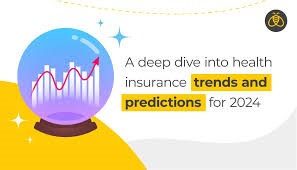Many people underestimate the importance of having insurance until they face unexpected situations. The hidden costs of living without insurance can be much higher than anticipated, leading to financial strain and stress during difficult times. Without coverage, even minor incidents can quickly escalate into major expenses, impacting a person’s financial health and future stability.
In many cases, the immediate savings from not having insurance can lead to long-term challenges that compound over time. It often becomes clear that the risks associated with being uninsured far outweigh the costs of obtaining coverage. Individuals who face sudden medical emergencies, accidents, or property damage find themselves unprepared and potentially overwhelmed by the expenses that arise.
Understanding these hidden costs is crucial for making informed decisions about personal finance and well-being. Knowing the potential ramifications of skipping insurance can motivate individuals to seek the protection and peace of mind that comes with being insured.
Key Takeaways
- Not having insurance can lead to unexpected financial burdens.
- The lack of coverage increases long-term risks and complications.
- Being insured offers stability and security during emergencies.
Financial Ramifications of Uninsured Events
Not having insurance can lead to serious financial struggles. Events like medical emergencies, accidents, and natural disasters can become costly without coverage. Here are some specific situations that highlight the financial risks.
Emergency Medical Costs Without Health Insurance
Medical emergencies can happen to anyone at any time. Without health insurance, they bear the full cost of hospital visits, surgeries, and treatments.
For example, a single emergency room visit can cost thousands. The average cost ranges from $1,000 to $8,000 depending on the situation. If surgery is required, it can increase drastically, often exceeding $50,000.
Patients may also need follow-up care, which adds more expenses. This burden can lead individuals to debt or bankruptcy, affecting their financial future.
Legal Consequences of Driving Uninsured
Driving without insurance carries legal risks. If someone is caught driving uninsured, they face fines that can range from $500 to $2,500. This does not include possible legal fees if an accident occurs.
If an uninsured driver causes an accident, they may need to pay damages out of pocket. These costs can be very high, especially if injuries are involved. The driver could be responsible for medical bills, vehicle repairs, and more.
In severe cases, this can lead to loss of driving privileges and increases in future insurance premiums when the individual does decide to get coverage.
Losses from Natural Disasters and Home Insurance
Natural disasters can strike unexpectedly, causing extensive damage. Homeowners without insurance must pay for repairs themselves, which can be overwhelming.
For instance, the average cost of repairing a roof after a storm can reach $5,000 to $20,000 or more. Flooding and fire damage can lead to even higher costs.
Without insurance, individuals may also lose their homes and valuable possessions. Those losses can result in financial hardship, impacting their ability to recover and move forward.
Long-Term Effects and Risks
Not having insurance can lead to serious long-term problems and increased risks that affect many areas of life. The consequences can impact financial stability, personal well-being, and family security.
Credit Score Impact from Unpaid Bills
When medical bills pile up without insurance, many people struggle to pay them. Unpaid bills can end up in collections, which significantly lowers a person’s credit score.
A lower credit score can lead to:
- Higher loan interest rates
- Difficulty renting an apartment
- Challenges in getting future loans
Maintaining a good credit score is crucial for financial health. Losing it can create barriers to essential services and opportunities.
Risk of Personal Bankruptcy
Without insurance, unexpected health issues can result in overwhelming medical costs. Many people find themselves unable to pay these bills, which may lead to bankruptcy.
Bankruptcy is a long-term financial consequence that can leave individuals in tough situations.
Filing for bankruptcy can result in:
- Loss of assets
- Inability to secure loans
- Long-lasting effects on credit history
This process can take years to recover from, impacting future financial decisions and opportunities.
Inadequate Safety Nets for Family and Dependents
Not having insurance puts families at risk. If a primary earner suffers a health issue, the family may face severe financial strain. This lack of a safety net can result in loss of income and support.
Families can experience:
- Increased stress
- Difficulty meeting everyday expenses
- Disruption of education for children
In the absence of insurance, families may struggle to find alternative support. This can lead to long-lasting emotional and financial repercussions for everyone involved.
Also Read :










